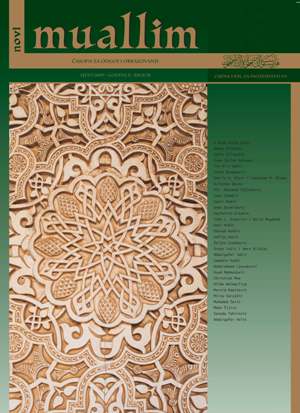BE AT A LOSS FOR WORDS ABOVE HER GRAVE AND FAITHFUL SILENCE
DOI:
https://doi.org/10.26340/muallim.v10i38.943Abstract
At this year’s Music Biennale Zagreb, an oratorio in twelve scenes, Zilverstad (Silver City)/Srebrenica was performed. Written by a German composer born in Zagreb, Miro Dobrowolny, Zilverstad will add a biennial context to the programme Art-Politics, with its secondary programme segments, Process- Music and Music-Diversion. The political art of this biennial looks pleads for the remembrance of crimes. Sadly, there was no mention of the performance of Zilverstad in Bosnian- Herzegovinian public papers. One could perhaps take comfort in the fact that the performance is a compositional effort of little relevance, ranging from muddy minimalistic doubletalk, to more or less meaningful singing parts, to quotations from a Serbian folk song to which Dutch and Serbian soldiers danced. But if the people of Bosnia have any intention of fostering the rememberance of the Srebrenica pogrom, or more generally speaking, of Bosnia and Herzegovina, and truly care about its past, they must seek to leave behind their own Guernica or Scream, or their own quartet about the end of time, as did a former detainee of a nazi camp, a composer called Olivier Messiaen.
Downloads
Published
How to Cite
Issue
Section
License
Naknada:
a. Časopis ne naplaćuje naknadu za obradu članaka (APC) i naknadu za podnošenje članaka.
Autori koji objavljuju u ovom časopisu pristaju na sljedeće uvijete:
- Autori zadržavaju autorska prava i pružaju časopisu pravo prvog objavljivanja, pri čemu će rad jednu godinu po objavljivanju biti podložan licenci Creative Commons imenovanje koja omogućuje drugima da dijele rad uz uvijet navođenja autorstva i izvornog objavljivanja u ovom časopisu.
- Autori mogu izraditi zasebne, ugovorne aranžmane za ne-ekskluzivnu distribuciju rada objavljenog u časopisu (npr. postavljanje u institucionalni repozitorij ili objavljivanje u knjizi), uz navođenje da je rad izvorno objavljen u ovom časopisu.


